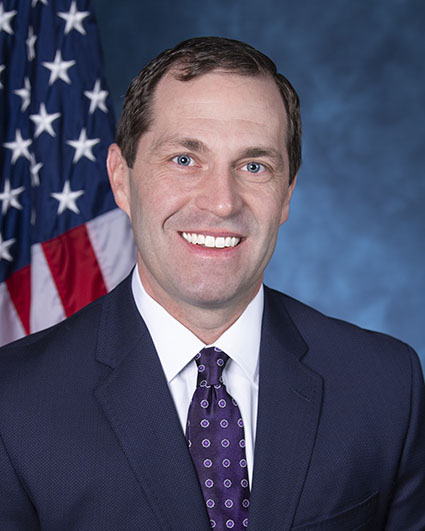
By Congressman Jason Crow
The science says that Alzheimer’s disease doesn’t discriminate. It takes the rich and poor. Residents of rural and urban areas. But the story doesn’t end there. There are certain segments of our society that are at higher risk for developing Alzheimer’s, and it’s critical that they be aware of those risks.
It’s widely known that age is the primary risk factor for developing Alzheimer’s disease. The preponderance of people living with dementia are over 65, and the risks accelerate as we age – with an estimated one-third of people at age 85 expected to develop dementia. But it’s not the
same for everyone:
- Women account for roughly two-thirds of all people living with dementia
- Black Americans are twice as likely as their White counterparts to develop Alzheimer’s
What can you do?
One bit of good news is that the science around Alzheimer’s is advancing rapidly. While researchers look for a cure, there is some promising news about:
- Ways you can reduce your risk by controlling blood pressure
- How lifestyle factors may lower your dementia risk
- Research on biomarkers that may someday give us an early warning about Alzheimer’s through a blood or saliva test
- Clinical trials you can participate in to help researchers find treatments and a cure (find them through TrialMatch, a clinical trial matching service)
Where can you go for help?
Ultimately, you should speak with your doctor if you have questions about your cognitive health. Ask your physician for a cognitive assessment, which should be part of everyone’s annual physical if you’re over age 65.
The Alzheimer’s Association also has a broad range of resources provided at no charge that can help, including:
- Information on the 10 early signs and symptoms of Alzheimer’s 24/7 Helpline (800-272-3900), staffed by trained professionals who can answer your questions and refer you to local resources
- Live webinars and online classes to learn more about dementia and how to cope with the disease
- One-on-one care consultations for you and your family
Please know that I am working hard in Congress to support the medical research community in its effort to develop treatments and a cure for Alzheimer’s and other forms of dementia. Since I came to Congress, the federal budget for Alzheimer’s and other dementias research at the National Institutes of Health has increased $425 million. I am proud to be part of the fight to end Alzheimer’s and create our first survivor of this devastating disease. Until that time, I strongly encourage you to take advantage of the resources offered by the Alzheimer’s Association if you or a loved one is challenged with dementia symptoms.
Alzheimer's Association
The Alzheimer's Association leads the way to end Alzheimer's and all other dementia — by accelerating global research, driving risk reduction and early detection, and maximizing quality care and support. Our vision is a world without Alzheimer's and all other dementia.™ For more information, visit www.alz.org or call the 24/7 Helpline at 800.272.3900.